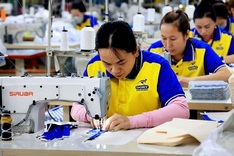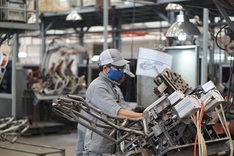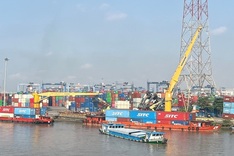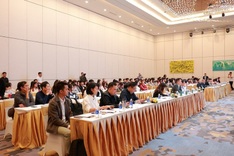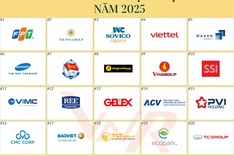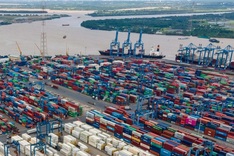Concerns about the strength of economic recovery in the United States weighed on Asian stocks on Thursday while dealers used the opportunity to cash in profits on recent gains in banks.
 |
| Specialist Michael Sollitto, right, directs trades at his post on the floor of the New York Stock Exchange Wednesday, July 28, 2010. The Dow Jones industrial average fell almost 40 points after the Fed released its regional survey of the economy, a report known as the \'beige book.\' (AP Photo/Richard Drew) |
Eyes were on the world\'s biggest economy after the Federal Reserve said on Wednesday that while conditions were improving the gains were "modest".
The weak verdict pushed Asian markets lower, with Tokyo losing 0.54 percent by the break, while Hong Kong opened 0.28 percent lower, Sydney fell 0.43 percent and Seoul was off 0.12 percent. Shanghai and Singapore were flat.
The losses came after four days of broad gains, which had been led by buying in banks after upbeat news from European stress tests last week and reports that planned restrictions on the global industry had been watered down.
Markets on Thursday were following a 0.38 percent drop on the Dow, which came after the anticipated Beige Book report turned out more pessimistic than the previous survey. It also comes on top of concerns over high unemployment and weak business confidence.
The book said that "economic activity has continued to increase, on balance, since the previous survey" in early June but noted significant headwinds.
"Among those districts reporting improvements in economic activity, a number of them noted that the increases were modest, and two districts ... said that the pace of economic activity had slowed recently."
It also pointed out sluggish activity in the housing market and retail sales, which is a key driver of the economy.
The downbeat assessment was compounded by news that orders for big-ticket items suffered the biggest drop in almost a year in June.
New orders for "manufactured durable goods" -- such as planes, cars, refrigerators and computers -- fell by two billion dollars, or one percent, from the previous month, the Commerce Department said.
Analysts had expected a rise of 1.1 percent.
Concerns about the US economy weighed on the greenback, with the dollar slipping against the yen, which in turn hurt Japanese exporters.
However, Sanyo surged 26 percent on a report that Panasonic plans to turn majority-owned subsidiary Sanyo Electric into a wholly-owned unit. Panasonic fell 5.5 percent on fears it would have to raise money for the move.
NEC lost 3.3 percent after posting a wider April-June net loss compared with the same period in 2009.
The dollar stood at 87.33 yen in early Asian trade, from 87.78 yen in New York late Wednesday.
The euro was at 1.2985 dollars, slightly down from 1.2997 dollars in New York. The single currency fetched 113.39 yen compared with 113.63.
Oil was mixed, with New York\'s main contract, light sweet crude for delivery in September, up six cents to 77.05 dollars a barrel in morning trade.
London\'s Brent North Sea crude for September was down five cents to 76.01 dollars.
Gold opened at 1,165.00-1,166.00, from Wednesday\'s close of 1,162.50-1,163.50 US dollars.



